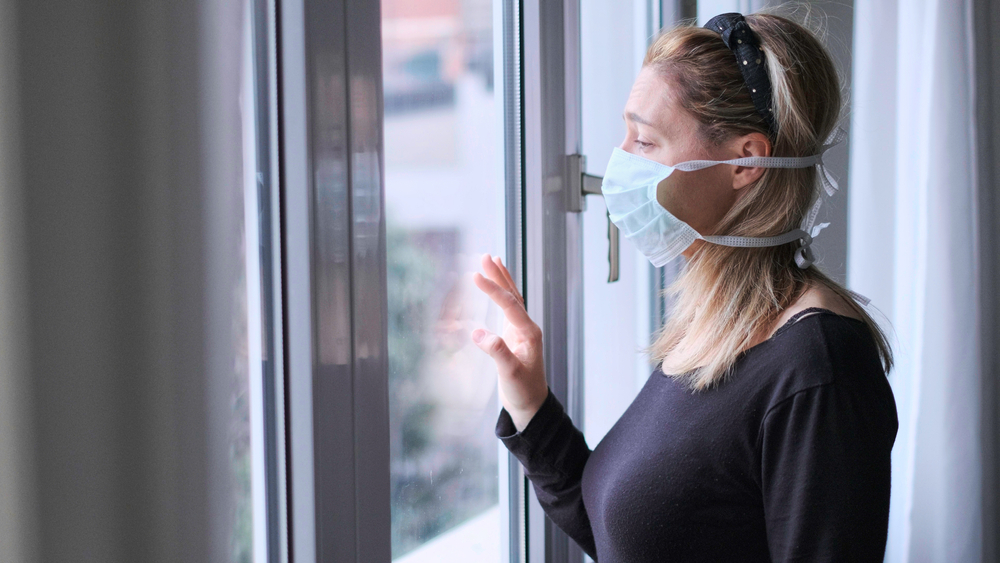The last few years have changed our employees in ways we are only just understanding. Consequently, as managers and leaders, we must change how we work with our people.
Let me set some context by reminding you what the human brain of your employees has been dealing with over the last thirty or so months.
Take yourself back to Christmas 2019.
In the UK, we wondered how Boris Johnson and his landslide victory for the Conservative party could shape the political landscape.
The US election year was about to start with Trump predicting his victory, while Eric Yuan, the CEO of Zoom, was blissfully unaware of how well his company would perform in the early part of the next decade.
Maybe you can’t predict the future after all.
Fear-Based Reactions to Uncertainty

Though the world’s scientific community had anticipated a global event like COVID-19 for some time, little did the majority of the population appreciate how significantly a pandemic would and continues to impact our lives, lifestyle and wellbeing.
The dream of working from home became a stark reality fast. In a Harvard Business Review post, Hiroki Hiramatsu, the head of global HR at Fujitsu, shared the shock they and other organisations were about to experience.
For years flexible working had been on the agenda with no movent, and yet within a few short weeks, the majority of the Japan-based employees, 80,000, were working from home, with many now wanting to have hybrid work as an option; a different demand from the Japanese workforce.
Though productivity at one level did increase for many remote working employees, a dip in people’s wellbeing and an increase in burnout started to happen fast.
Not surprising when you appreciate what everyone was dealing with.
Suddenly we were cut off from friends and family, with a real fear that we could catch the virus and die if we interacted and connected with people, a fundamental driver of the human species.
Made harder to process with no vaccine or cure predicted for a couple of years, something the current population are not used to dealing with.
For many of our employees, their limbic brain, which is designed to keep us safe, was in overdrive and still is.
As I now deliver training face to face again, some employees still don’t want to be in the room. Other individuals I come across have changed their life with concerts and travel off their schedule for the foreseeable future.
These aren’t vulnerable people in their eighties either; the unprecedented change is impacting them.
When Form Changes, It Rarely Returns To Its Original State

The end of 2020 saw some improvement though little did our human brains realise more uncertainty and fear were on the way.
The initial vaccine arrived in December 2020 at the same time as the first mutation of COVID-19 curtailed our Christmas as the UK and Australia went into lockdown again, with January the 12th, 2021 being memorable for the wrong reason, recording over 1,820 deaths from Covid, the highest ever number in the UK.
As different strains of the virus appeared, the world’s supply chain faltered, and inflation started to rise with a recession predicted in the next few years.
Then on February the 24th, 2022, Russia invaded Ukraine in a major escalation of the Russo-Ukrainian War that began in 2014, causing Europe’s largest refugee crisis since World War II.
The final piece to add to the mix is Roe versus Wade’s recent overturn. The US Supreme Court has overturned an American woman’s right to abortion.
With over seventy million female employees in the US, this decision will have an impact. Switched-on employers appreciate this already, with companies like Disney, JP Morgan, Meta and Amazon telling their female staff they will cover employee travel expenses for abortions.
True turmoil everywhere.
A constant flood of extreme uncertainty and the ability to observe human suffering through multiple media is flooding our bodies with emotions even the most grounded of us struggle to process.
It’s no wonder the coaching industry is exploding with people wanting support to handle what is happening.
The rules of engagement for our hybrid teams are changing.
Leaders need to develop their empathy, flexibility and appreciation of the human psyche like never before. It is time to be tuned to how to truly help your team.
Here at Zestfor, we are adapting our programmes to help; more on that during the summer.
For now, I am writing a series of posts over the next couple of months with a deep focus on helping both leaders and their teams handle a new way of being at work in a workplace that is still changing.
Until next time,
Julia
How We Can Help You Help Your Hybrid Team
Our range of leadership development programmes focuses on supporting you to improve your leadership capability and productivity, especially in our current turbulent environment. This will lead to better relationships and staff retention, particularly critical as I eluded to in this post.
Click here to find out more or call one of our team on 0845 548 0833.
About Zestfor
Zestfor specialises in developing leadership Training programmes and resources scientifically tailored for technical markets – including Pharmaceutical, IT, and Life Sciences.
Our blend of in-classroom, online, and virtual live-stream delivery methods will engage and assure even the most introverted team members from the first meeting – whether face-to-face or virtually. So, to have a brief chat, call us on 0845 548 0833.









